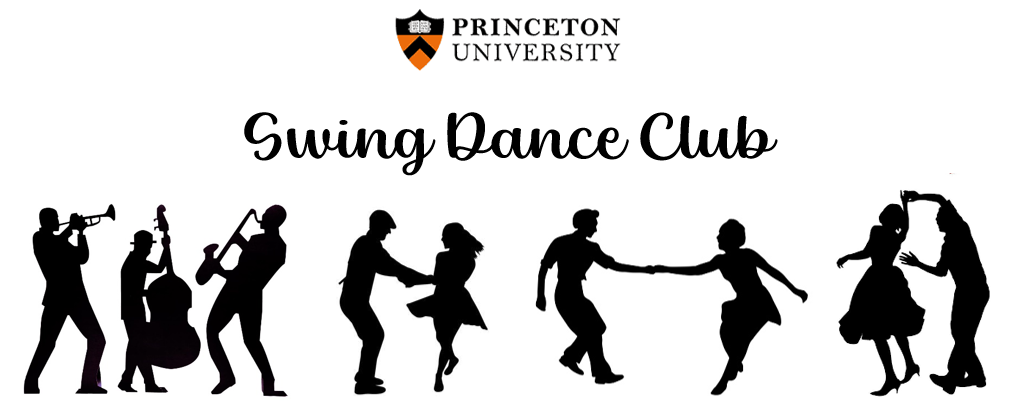The mission of the Princeton Swing Club is to promote social swing dancing at Princeton University and in the Princeton community.
Swing dance began with the invention of the Lindy Hop, an improvisational street dance of African American origin that was created in the late 1920s in the Savoy Ballroom in Harlem. Created by “Shorty” George Snowden and his partner Mattie Purnell and popularized by Black dancers like Frankie Manning, Norma Miller, Willa Mae Ricker, and Leon James, the “Lindy Hop” quickly took the country by storm. Over the years, Lindy evolved into a multitude of styles that fit all sorts of music genres, and these dance styles are collectively known as swing. Swing dances like Lindy Hop, Balboa, and East Coast Swing are still quite popular today; vibrant swing scenes exist in just about every US city and in many cities across the world.
We love swing because of its flexibility and its focus on partnering and connection. While ballroom dance moves are more structured, in swing anything goes. Modern swing dancers invent moves constantly. While ballroom dancers tend to focus on what looks good, swing dancers focus on what feels good. (And if it feels good, chances are it looks good, too!) Above all, we value play and fun. A national instructor used to say, “If you don’t fall on your ass at least once a night, you haven’t tried anything cool!” (Of course, you can be silly or you can be classy – your choice!) Finally, the music is fun! At swing dances you will hear gems from the big bands of the past with lyrics sung by legendary jazz vocalists like Ella Fitzgerald and Louis Armstrong, but you will also hear modern hits from genres ranging from country western to rock & roll.
We believe that anyone who can walk can dance! With our beginner lessons, we strive to provide our club members the ability to swing dance with anyone anywhere in the world. Towards this, we teach social swing dancing and encourage our entire club to practice with everyone, learning and improving as they go!
The Princeton Swing Club welcomes people of all ethnicities, races, genders, sexualities, and faiths. We respect the African American origins of swing dance and see our club as a celebration of Black excellence in both dance and music. We also believe that swing dance roles should not be gender-specific; we encourage everyone to try both leading and following in each dance to find which dance role they enjoy most, and we try our best to use gender-neutral language when teaching these roles.
